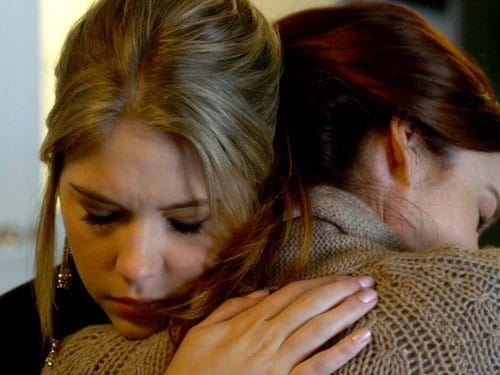
CRAFT is an innovative program by Cadence Online that offers parents of addicts and alcoholics the skills they need to overcome the challenges of substance abuse. We strongly encourage the parent’s of all of our clients to utilize Parent Craft:
Family involvement is important in substance abuse treatment
It’s excruciating to watch your child struggle with addiction.
You stand by confused, overwhelmed and feeling helpless while you watch the social, happy, seemingly well-adjusted light of your life turn into a complete stranger. Your child seems to have suddenly grown up without you noticing, and has turned into an unpleasant stranger who doesn’t care about family, hygiene or decent dress code – and is moody, withdrawn, and secretive. In fact; you feel like you’re being treated like the enemy. You genuinely feel like you have become your child’s enemy – the last person he or she wants to have any kind of conversation with.
Regardless, you try to help your child. You try over and over again to help in the best ways you know how. You also change. You become the person who walks on egg shells around your own child. You are careful about how you word questions to get the information you so desperately need; you hope it will just go away by itself; you pretend you’re imaging things but search his or her room while they’re away; if you’ve never prayed before, you pray now… And you hate yourself for distrusting your child. You also hate the relentless rollercoaster of guilt, despair, anger, sadness, shame, worry and insomnia that you fear will never stop. Most of the time you don’t even know who you’re angrier at: your child or yourself. Confusion becomes your constant companion and fear just another feeling that’s now as much a part of you as breathing.
It’s not your fault. You cannot compete with addiction.
Drug and alcohol abuse affect the entire family and stretch all relationships to a breaking point. The truth is that you and your partner have ‘lost’ a child. Your other children have ‘lost’ a brother or sister. You have all been replaced by addiction. You cannot compete with addiction.
Although you are all mourning the loss of your child and sibling while trying to get to know the stranger in your home, you keep trying to help. You read up as much as you can. You try again; over and over – and fail dismally; over and over. It seems impossible to reach them. Your anger at your situation increases and, after countless failures, your energy is depleted. Then someone suggests step 1 of Al-anon, “You are powerless over someone’s drinking and behavior” and they suggest you attend a local group. You resort to the before unthinkable strategy you’ve heard of or read about: tough love.
What is tough love?
Intrinsically, tough love is an attempt to get an addict to change his or her behavior in a strict, unsympathetic way. Regrettably, this includes a parent having to detach from their child, “detach with love” as it’s called. It’s harsh and often includes counter-productive actions such as threats, damaging punishment and humiliation. A parent might point out the child’s poor appearance and that of their friends, take away privileges and items that have meaning to the child, and try to force the child to stay at home. When the parent has reached a breaking point, he or she might kick the child out of the house and even refuse to take desperate phone calls.
But pain does not promote change. And this is why tough love doesn’t work.
Dr. Robert Meyers, creator of the CRAFT (Community Reinforcement and Family Training) approach and co-developer of Parent CRAFT, which promotes a caring outlook for parents, explains: “The problem with tough love is that it rarely works, and in fact, often makes the problem much worse”. He goes on to explain that young addicts are already dealing with a lot of negativity in their lives. They are already in emotional pain and likely feeling lonely.” As explained in this popular YouTube video, “Everything we think we know about addiction is wrong.” Happy people don’t need to escape with drugs and alcohol.
Creating more negativity with tough love, therefore, won’t entice them to change. To the contrary – it will cause them to use more, further destroying the bond between the parent and child. More trauma just snowballs the problem and brings them to a new low where using is the only way to feel OK again. In other words: re-traumatizing your child as a strategy does not stand a ghost of a chance of returning them to you.
Family therapy: Addicts need to belong and have hope
Incorporating family therapy into addiction treatment will provide the addict the knowledge that he or she is not alone and has a caring support system – a sense of belonging, connection and hope. “Parents want to give their addict child hope for a brighter future. For a positive change to happen, you need to surround addicts with compassion while communicating clearly. Emotional support and a sense of family are very powerful,” says Meyers.
Family Therapy Resources
Whether you’re already participating in Al-anon or not, you can incorporate CRAFT and Family Therapy into your treatment plan, here are two places to get started:
- From the creators and top researchers of CRAFT comes Parent CRAFT, an online video course which is based on the CRAFT method — teaching parents the skills they need to meet the challenge of their child’s problematic substance use.
- The Northbound Family Program. Northbound understands that addiction effects everyone close to the addict, and offers monthly family groups in order to help everyone recover together.
Author
-

President, CEO & Founder at Northbound Treatment Network
Paul Alexander is the CEO, President & Founder of Northbound Treatment Network in Newport Beach, California. He believes wholeheartedly in transformational leadership, organizational health and effective, fully integrated substance use disorder and mental health treatment. With over 27 years of experience in behavioral healthcare, Paul has extensive knowledge of “in vivo” treatment modalities, clinical development, operations, strategy, marketing and financial planning. He has been widely recognized for his development of collegiate-based residential treatment programs for students in recovery and authored a research study at The University of California confirming this modality’s effectiveness.
Paul’s comprehensive professional experience, willingness to innovate, and emphasis on organizational health are vital factors in Northbound’s continued success. Paul received his Certified Addiction Treatment Specialist training at Saddleback College in Mission Viejo, CA, and was awarded Outstanding Alumni Service Award in 2002. Paul holds a Bachelor of Arts degree in Criminology, Law and Society, Summa Cum Laude, from University of California, Irvine, and a Juris Doctorate degree from Loyola Law School of Los Angeles. Paul currently serves on The National Association of Addiction Treatment Providers (NAATP) board. In addition, he serves on The Family Recovery Foundation board and The CarePossible board in Orange County; both organizations are committed to raising funds for family recovery and treatment for former military personnel. Paul is in recovery himself and lives in Orange County with his wife Silvana and his two young sons, Noah and Dean.










